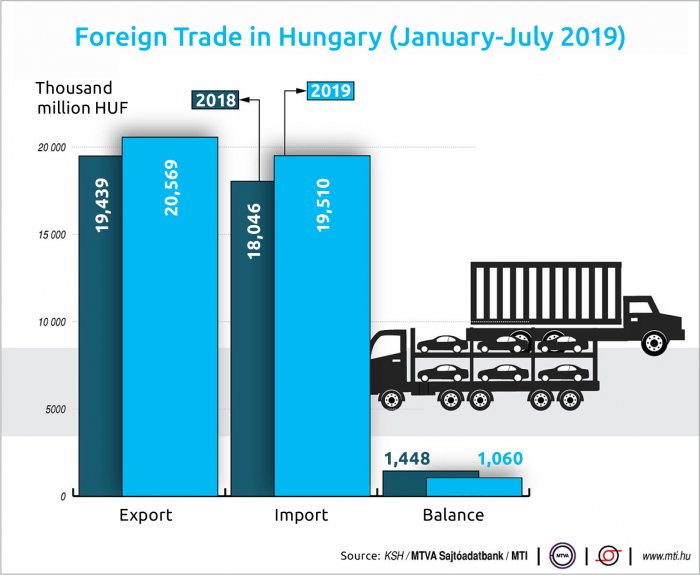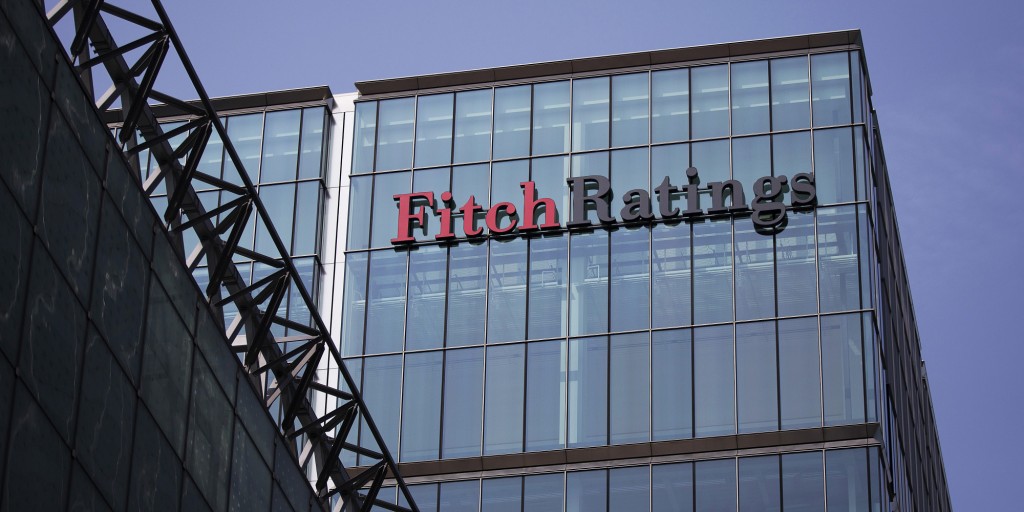Resilient Hungary Swimming Against the Tide, Thus Far

The OECD has released its latest interim global economic outlook report, and it looks more pessimistic than ever, cutting back on global growth prospects. Rating agency Fitch also published a gloomy outlook recently. Hungary, thus far, has able to swim against the tide.
In its Interim Economic Outlook September 2019 report, the OECD says it expects a deteriorating global environment, significantly lowering its global growth projection for this year and the next.
The organization projects that the global economy will grow by 2.9% in 2019 and 3% in 2020; the weakest annual growth rates since the financial crisis, with downside risks continuing to mount. In its previous report, the OECD said the global economy would grow by 3.2% this year.
Economic prospects are weakening for both advanced and emerging economies, and global growth could get stuck at persistently low levels without firm policy action from governments, the document warns.
According to the report, trade conflicts are the principal factor undermining confidence, growth and job creation across the world economy. It emphasizes that the continuation of trade restrictions and political uncertainty could bring additional adverse effects.
The authors of the report worry that consumer demand, which has supported service sector output up until now, could decrease if weakness persists in the manufacturing sector. If paired with continuing trade tensions, this will negatively affect employment growth, household income and spending.
Brexit Uncertainty
The OECD also warns about the possible effects of the withdrawal of the United Kingdom from the European Union, stating that substantial uncertainty persists about the timing and nature of Brexit, particularly as concerns a possible no-deal exit which could push the United Kingdom into recession in 2020 and lead to sectoral disruptions in Europe.
But there are other risks as well that threaten the global economy. The overall slowdown in the Chinese economy and significant financial market vulnerabilities from the tension between slowing growth, high debt and deteriorating credit quality are also weighing on future growth, the report says.
“The global economy is facing increasingly serious headwinds and slow growth is becoming worryingly entrenched,” the report cites OECD Chief Economist Laurence Boone as saying.
“The uncertainty provoked by the continuing trade tensions has been long-lasting, reducing activity worldwide and jeopardizing our economic future. Governments need to seize the opportunity afforded by today’s low interest rates to renew investment in infrastructure and to promote the economy of the future,” Boone said.
In detail, the OECD report forecasts that the economies of the G20 countries will produce growth of just 3.1% this year, down from a 3.8% expansion in 2018. As for the eurozone, the report foresees a mere 1.1% growth rate for 2019, down from 1.9% in 2018. The GDP growth of the United States is expected to fall back to 2.4% this year.
As to the possible effects of a no-deal Brexit, the OECD report says that in 2020, the U.K. economy could slow by 2%. However, a no-deal Brexit would also negatively affect all EU member states. According to the report, there would be a 0.5 percentage point setback in the short-term.
Trade Disruption
The new Global Economy Outlook of Fitch Ratings has also lowered growth projections for the global economy. Published at the end of September, the report states that world growth next year will fall to the lowest rate since 2012.
“There can be few precedents since the 1930s of global growth prospects being affected so significantly by trade policy disruptions,” said Fitch chief economist Brian Coulton.
Fitch’s world GDP growth forecasts for both 2019 and 2020 have been lowered by 0.2 percentage points since the June forecast in response to the sharp escalation in the U.S.-China trade war over the summer. Global growth is projected to fall to 2.6% this year and to 2.5% next year from 3.2% in 2018.
As for the Hungarian economy, it thus far seems to be resilient: several major organizations have raised their growth projections. The European Commission said in the summer that this year’s economic growth might be as high as 4.4%, up from its previous projection of 3.7%. In its latest inflation report, the National Bank of Hungary also raised its forecast for economic growth for this year by 0.2 of a percentage point to 4.5%.
Indeed, the Hungarian economy keeps producing outstanding figures: the volume of gross domestic product was 4.9% higher in Hungary in the 2nd quarter of 2019 than in the corresponding period of the previous year.
That puts Hungary firmly among the leading nations of EU countries sorted by GDP growth. However, as Minister of Finance Mihály Varga noted in a speech at a professional conference a few weeks ago, the “golden age” of the Hungarian economy is coming to an end due to the external slow down. He added, however, that the effects of the slowdown of the German economy have not yet been felt, which shows that Hungary’s vulnerability to external risks has lessened.
SUPPORT THE BUDAPEST BUSINESS JOURNAL
Producing journalism that is worthy of the name is a costly business. For 27 years, the publishers, editors and reporters of the Budapest Business Journal have striven to bring you business news that works, information that you can trust, that is factual, accurate and presented without fear or favor.
Newspaper organizations across the globe have struggled to find a business model that allows them to continue to excel, without compromising their ability to perform. Most recently, some have experimented with the idea of involving their most important stakeholders, their readers.
We would like to offer that same opportunity to our readers. We would like to invite you to help us deliver the quality business journalism you require. Hit our Support the BBJ button and you can choose the how much and how often you send us your contributions.









